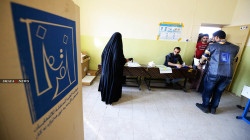"A Return to Dictatorship".. Social Media Content Regulation raises local and international concerns

Shafaq News / Several activists, lawyers, and observers have expressed concern that the Social Media Content Regulation, which the Communication and Media Commission (C.M.C.) plans to approve, will be used to stifle free speech and silence critics of the "government failure" and widespread corruption in the country.
Many spokesmen confirmed to Shafaq News Agency that this list is a double-edged sword and that many of the items are "mined" in such a way as to restrict freedoms, particularly freedom of speech. They noted that "these laws and policies appear positive, but their interior is negative aimed at returning the country to dictatorship," emphasizing the need to reconsider it.
Double-edged weapon
"Since the C.M.C. has authority over society's publishing, conventions, traditions, and dedication to public taste, its restrictions must be effective. However, we worry that they will be used to stifle dissent of the government and the judiciary, which is a serious issue, "said legal expert Mohammed al-Obaidi.
"Some political systems may want to shield themselves from the voices that criticize them, so this list is untimely because there is no standard upon which these violations will be based, at a time when the judicial authorities should have dealt with the corruption of some parties to foster confidence among the people."
"Mined" items
For his part, Ali al-Dahamat, founder of the Tishreen (October) Organization for Human Rights, said, "The provisions of the Social Media Content Regulation carry many mined paragraphs that restrict liberties, especially freedom of expression."
He explained that "the most important of these paragraphs is criticism of the state, authorities, and personalities, as it was called targeting, which poses a threat to freedom of speech."
A Return to Dictatorship
Civil activist, Omar al-Ta'ie, said that "the country is on the verge of collapse, and the ruling political forces cannot address failure, so they resort to stifling voices, particularly in light of the political awareness of young people that emerged following the October demonstrations that nearly toppled them. As a result, they fear the coming youth who only have their free opinion and the tools of democracy to oppose them."
Al-Ta'ie continued, expressing his rejection of "these policies and laws, which appear positive and inwardly negative, aimed at returning the country to dictatorship, which are open to interpretation according to the whims of the authority without controls, and which are fundamentally contrary to the Iraqi constitution."
He added, "We have repeatedly urged lawmakers to enact laws that govern public opinion restrictions and to establish a formula that benefits society without having any political implications. Unfortunately, despite our calls, these laws are being attempted to be passed in a way that stifles speech, elevates power, and ignores society, which suffers from unregulated cyberspace."
A positive step
On the other hand, legal expert, Ali al-Tamimi, believes that "the regulation governing social media content is derived from articles in the Iraqi constitution, the Universal Declaration of Human Rights, and the Charter of the International Covenant, and consists of 35 articles. Also, the regulation was based on the C.M.C. Law 65 of 2004, sections I and V."
He continued, "The regulation worked to collect dispersed provisions in the Penal Code and other laws, which are suitable as a temporary alternative to the Cybercrime Law, which includes cyber extortion, contempt of religions, security crimes, and others."
"This regulation helps curb what is published, with warnings stipulated in the regulation in case of violation and the need to remove what is shared. Therefore, it is a positive step in the right direction to control the chaos that prevails in social media."
On Tuesday, the C.M.C. issued the regulation of social media content in Iraq No. 1 of 2023, igniting controversy among bloggers, writers, content creators, and specialists who claimed that it "restricts freedoms and adopts unscientific and unprofessional basis in writing it."
Notably, the Iraqi judiciary issued prison sentences against several activists on social media sites, on charges of sharing "inadequate content."
Moreover, earlier, the Euro-Mediterranean Human Rights Monitor expressed concern over the arrests and prison sentences issued against Iraqi content creators as part of the campaign to combat "inadequate content".
The Euro-Med Monitor reviewed the content provided by some of those sentenced to prison and found no evidence to support the charges brought against them. It also appeared that the content they were providing - individually - did not go beyond the bounds of their constitutionally protected rights, particularly the right to freedom of thought, expression, and publication.
"The criminalization of these behaviors is based on vague concepts such as breach of modesty and morals, which are general terms, and their assessment and interpretation may vary greatly according to different factors and circumstances."
The Euro-Med Monitor expressed its concern that this campaign will extend to restricting public freedoms in the country, criminalizing individuals' criticism of officials or state institutions, and legitimizing the prosecution of political activists.





